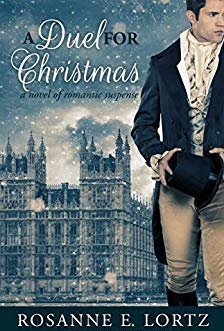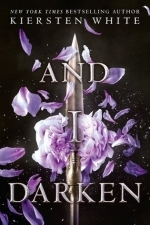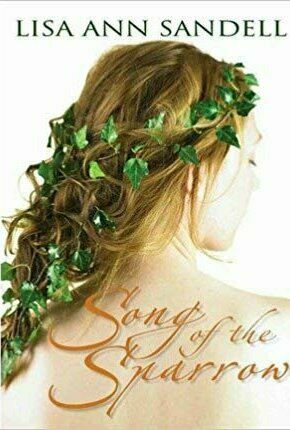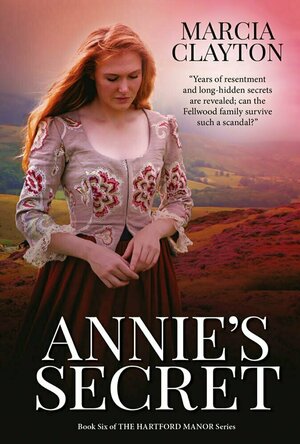
Annie's Secret (Hartford Manor #6)
Book
1887, North Devon, England When Lady Eleanor Fellwood gave birth to a badly deformed baby, she...
Historical Fiction Victorian Family Saga Historical Romance

Siren's Call (Dark Tides #1)
Book
Between desire and love there are some things that can’t stay buried, even in the deep of the...
MaryAnn (14 KP) rated A Duel for Christmas (Pevensey Mysteries, #3) in Books
Mar 5, 2019
The Duke of Tilbury considers himself as adept at managing matters as he is at swordplay, but his beautiful new acquaintance Lady Worlington has other ideas about how to manage her complicated life. Intrigued by their stolen kiss, Geoffrey pursues Lady Worlington’s affections, only to be foiled by the lady’s own doubts, by rivals for her hand, and by a sudden death, that affects both their families. When Jacob Pevensey, the investigator from Bow Street enters the scene, the duke becomes a prime suspect in the murder case. Truths are unearthed that Geoffrey would rather keep hidden, and the twelve days of Christmas race toward a perilous end.
My Thoughts: A story full of mystery, suspense, romance, and some charming characters. I truly enjoyed this story, based on the twelve days of Christmas, in true Victorian style. The characters were well developed and easy to relate to. Some you liked and some you dislike. It was good to see the strengthening of Maude's character, that she was finally able to stand up for herself and to go on with life without being bullied or blackmailed. This story takes many twists and turns and has many surprises for the reader. This is a book for those who like historical fiction. A wonderful read just in time for the Christmas season!

The Duke of Fire
Book
Miss Jane Harcourt has seen the roguish ways of men and has resigned herself to remaining alone the...
Fiction Romance Historical
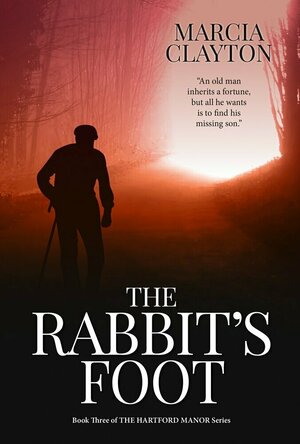
The Rabbit's Foot (Hartford Manor #3)
Book
1885 North Devon, England Mr Edward Snell was more than a little curious when Robert Fellwood,...
Historical Fiction Family Saga Romance
Louise (64 KP) rated And I Darken (The Conqueror's Saga #1) in Books
Jul 2, 2018
And I Darken is a new Historical fiction/Re-telling of Vlad the Impaler but gender swapped. Goodreads have it listed as being a fantasy, but there is no magic or any paranormal goings on whatsoever…glad we got that cleared up.
Our story follows Ladislav (Lada) and Radu Dragwyla the descendants of Vlad Dracul, Prince of Wallachia. Vlad is a vile human being and uses his own children for bargaining with the Ottoman Empire, there lives are at risk if he does not keep to the treaties terms. Living in the Ottoman Empire is risky for Lada and Radu, Lada could easily be married off to some suitor for allegiance or killed whichever is easier for the Sultan. Running the grounds they bump into a young boy the same age as them, only to find that he is the Sultan’s son Mehmed. Mehmed is a lonely boy with only his tutors for company so he befriends them both and shares all his education and time with them, which in turn takes them out of the spotlight.
Lada is a very strong character, she is a force to be reckoned with. She is brutal,fierce and just a total badass throughout the book. Being born a woman is one almighty struggle to be taken seriously in the 1400’s. She knows that she is the rightful heir of Wallachia at the young age of 11. She wants to impress her father with her fighting skills and there is a point when she thinks she has, but the only thoughts her father has is marrying her off to a suitor and being a dutiful wife. Lada is very family orientated and has a very unique relationship with her brother Radu but she will never show any emotion as this is a sign of weakness and she is perceived as a cold-hearted bitch.
Radu was always a disappointment to his father, weak,cowardly and clinging to his nursemaids side infuriated Vlad. Radu was the more emotional of siblings, even though he was not great at fighting he had a devious and cunning mind that made him equally as dangerous as Lada.
My feelings towards the characters changed a lot throughout the book at first I thought Lada was just a psychotic child but realised she is trying to prove herself as being fierce. Radu he was very sweet throughout the book and always wanted his sister to just open up and tell him she loved him and for him to tell her his secrets and feelings. The main point is that they are flawed and this is what makes characters great.
Mehmed just annoyed me and he got in the way of Lada’s plans.
The book does contain romance, a love triangle where no one expresses their love for anyone as they are too scared of the consequences or that it will stop them from their goals in life. So the romance is frustrating to say the least.
This book has a lot of political intrigue,so be prepared for wars,treaties,soldiers and their ranks. This is Historical fiction but as in the author’s notes at the end it is not accurate and a lot is made up. Religion is also touched upon, mostly Islam with Christianity but it’s not too in your face or info dumping. The book is nearly 500 pages long! I felt it could have been shorter. I enjoyed the relationship between Radu and Lada,it was a very different set-up from what we are used to. This did take me a little longer to read as in places it was very slow and I found myself getting bored.
This book covers themes such as sibling rivalry, relationships, families, romance, feminism, sexism and politics
<img src="https://images.gr-assets.com/books/1476160834l/22817331.jpg"; width="120" height="180"/>
Now I Rise is the second installment of the And I Darken saga which is due to be released in June 2017 which I will be reading as I am interested in what is going to happen next with Lada.
Overall I rated this 3.5 out of 5 stars
Becs (244 KP) rated Song Of The Sparrow in Books
Oct 2, 2019
Type: Stand-alone
Audience/ Reading Level: 12+
Interests: King Arthur and the Knights of the Round Table, Historical Reads, Lyricism, Poetry, Retellings.
Point of View: Third person
Promise: A tale of love, betrayal, and war.
Insights: I have no idea where or when I received/ got this novel. But ever since that day, Song of the Sparrow has been one of my favorite retellings of King Arthur and the Knights of the Round Table. My copy is very beaten up, so it’s gotten it’s many of read-throughs in. It also makes me think that I use to be pretty rough with my books. (what in the heck is wrong with you Becca! smh) I remember reading through SotS and thinking of myself as Elaine, the MC. Does anybody else do that? Because it hasn’t gone away with me.
I loved every aspect of this little novel. My favorite part was not only the retelling of King Arthur and the Knights but also how the novel was written in a sort of lyricism way, a lot like poetry. Novels written this way have always drawn my attention and I find them quite refreshing to read when in a slump or trying to get out of one.
Favorite Quotes: “I am Elaine daughter of Barnard of Ascolat. Motherless. Sisterless. I sing these words to you now, because the point of light grows smaller, ever smaller now, even more distant now. And with this song, I pray I may push back the tides of war and death. So, I sing these words that this light, this tiny ray of light and hope may live on. I dare not hope that I may live on too.”
“So long ago now. But you remind me of her, you know. Sometimes I forget that you are not she. Sometimes I forget that I should not blame you for leaving me. It was her. I was her.”
What will you gain?: A new telling of what life back in the olden days was like for a female in an all men village.
Aesthetics: Everytime I read-through Song of the Sparrow, I always stare at the cover. Something about it is just very appealing, not only to the eyes but also with the mind. Another aesthetic I found that I loved was how the story was written like lyricism/poetry.
“And at that moment, a lilting melody lifts to the moon as a single sparrow sings.”
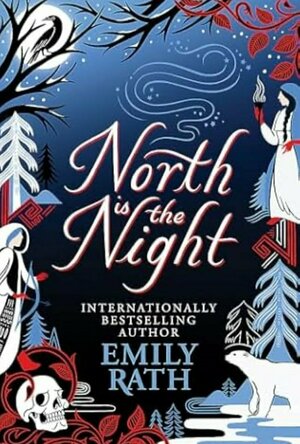
North is the Night
Book
With the dark, mythical magic of the Winternight trilogy, and the slow-burn romance of Spinning...
Historical fiction
Hazel (1853 KP) rated Blood for Blood (Wolf By Wolf #2) in Books
Dec 17, 2018
Ryan Graudin blew readers away with her alternate historical novel <i>Wolf by Wolf</i>. Now it is time to conclude the imaginative narrative with the highly anticipated sequel, <i>Blood for Blood. </i>Continuing from the precise moment Yael pulled the trigger on the Führer’s doppelgänger, the reader is thrown into a lively story of twists and turns, where danger lives around every corner.
To recap, it is 1956 and Hitler has won the war. Germany, or Germania, is ruling over Europe and many countries in Asia and Africa. Yael is a Jewish girl who a doctor experimented on whilst she was detained in a concentration camp. As a result of the brutal medical treatment, Yael is a successful result of the Doppelgänger Project – she can now change her physical appearance and anatomy at will.<i> Wolf by Wolf</i> focused on Yael and the resistance’s attempt to win a prestigious motorcycle race in order to get close to the Führer and end his life. As it turns out, Yael is not the only person with this skin shifting ability.
On the run with the entire world knowing her secret, Yael is desperate to make contact with the resistance leaders and continue with their plot to assassinate Hitler. However, unable to leave innocent people to suffer at the hands of the National Socialists, Yael ends up being accompanied and hindered by two Aryan boys, Luka and Felix. Yet with no way of knowing who can be trusted, Yael is taking a fatal risk by helping others instead of saving herself.
Despite circumstances, the blossoming romance that began to advance toward the end of the first book continues to feature in <i>Blood for Blood</i> as characters begin to rely on and trust each other. Nonetheless, constant plot developments obstruct all thoughts of a happy ending. Clever twists and gradually emerging truths prevent any opportunity for rest or safety.
<i>Wolf by Wolf </i>was an exciting, new concept for young adult readers, answering a “what if” question about the second world war. Yet the historical setting – albeit fictional – was impeded by the focus on the Axis Tour as characters raced from Germania to Tokyo. In contrast, <i>Blood for Blood</i> leaves all distractions behind, giving full attention to the life and danger under Hitler’s dictatorship. Despite Germany/Germania’s triumphant win, war is still raging throughout Europe. Anyone not meeting the Aryan description is at risk of death or deportment. Strictly speaking, the situation described must look similar, if not the same, as the true result of Nazi ruling.
Ryan Graudin is a formidable writer with the ability to make fiction seem like reality. Despite the added science fiction twist, the imaginative scenario is so well researched and planned that it becomes almost believable. Graudin comes at the story from so many directions, evidencing the effort put into creating the thrilling plot. It is one thing to be able to string words together, but to make them come alive it takes a genius.
<i>Blood for Blood</i> is by far the better of the two novels, making it the perfect conclusion to a fantastic two-part story. Beginning with explosive action and not stopping until its heart-wrenching conclusion, <i>Blood for Blood</i> will satisfy readers of all ages and genres. Those who have read <i>Wolf by Wolf</i> definitely must get their hands on this amazing sequel. You will not be disappointed.
Haley Mathiot (9 KP) rated The Wolf Next Door (Westfield Wolves, #3) in Books
Apr 27, 2018
Genre: Paranormal werewolf romance, historical fiction
ISBN:9781402236969
Published: June 1st 2010 by Sourcebooks Casablanca
Rating:
Years ago, William Westfield and Pricia Hawthorne were in love—but Pricia's heart was broken and she refuses to let the scoundrel forget it. She knows now that he never committed the accused crime… but she can't bare to give her heart to him again. Even though she wants to.
Will has established his reputation as the best lover in six centuries. And he knows he did it to get Pricia out of his head. He still loves and adores her, snotty remarks and spirited personality and rule-breaking attitude and all. But when he is forced to visit the Hawthorne house to escort his sisters-in-law, he discovers that another man—another Lycan man—is pursuing her hand in marriage. Will doesn't think: The games are over. He decides that he will do anything and everything to keep the other werewolf away, and claim her forever.
This was, out of the three Westfield stories, my favorite. From the time I started reading, I couldn't put it down. It was fast-paced, exciting, and romantic. Although can I say that the covers—for this one and the others—could have been better? Still, I loved the story.
Will has always been my favorite Westfield, because of his happy, funny, warm, laid-back personality… and I loved seeing him desperately in love, trying his hardest to charm Pricia's socks off. Pricia is my favorite kind of heroine: the kind that can hold her own, especially with five brothers. Put Will and Pricia together, and you have an epic couple: They love each other, they hate each other. But they only hate each other because they love each other… a never-ending circle, a never-ending conversation, and a never-ending story… but a very satisfying ending to the book.
The plot was a lot more exciting than Dare's other werewolf stories—not to say the others aren't exciting. But this one surpassed the others. The other Lycan threatening Will's happiness added a good conflict to the story. Pricia's execution of torture on poor Will was both pitiful and hilarious. There was a war going on between the two wolves, and a war going on between the lovers, and it made for a stay-up-until-3-AM kind of book.
One of the reasons this one was probably my favorite, was because it wasn't sappy. I'm not saying the others are: but there was this running theme of the woman telling the man she was in love with him, and the man not admitting it until way too late, and causing problems because of it. There was none of that in The Wolf Next Door. Will straight up told Pricia that he loved her. He told her father he loved her. He told his brothers, and her brothers, that he loved her. And it made their romance much better and much more believable.
Magic, romance, heart-break, rivals, witches, and true love…all tied together with a sweet, naive, innocent little devil, and a very handsome werewolf. This one is begging to be re-read.
Content/recommendation: Little language, some sex. Ages 18+
